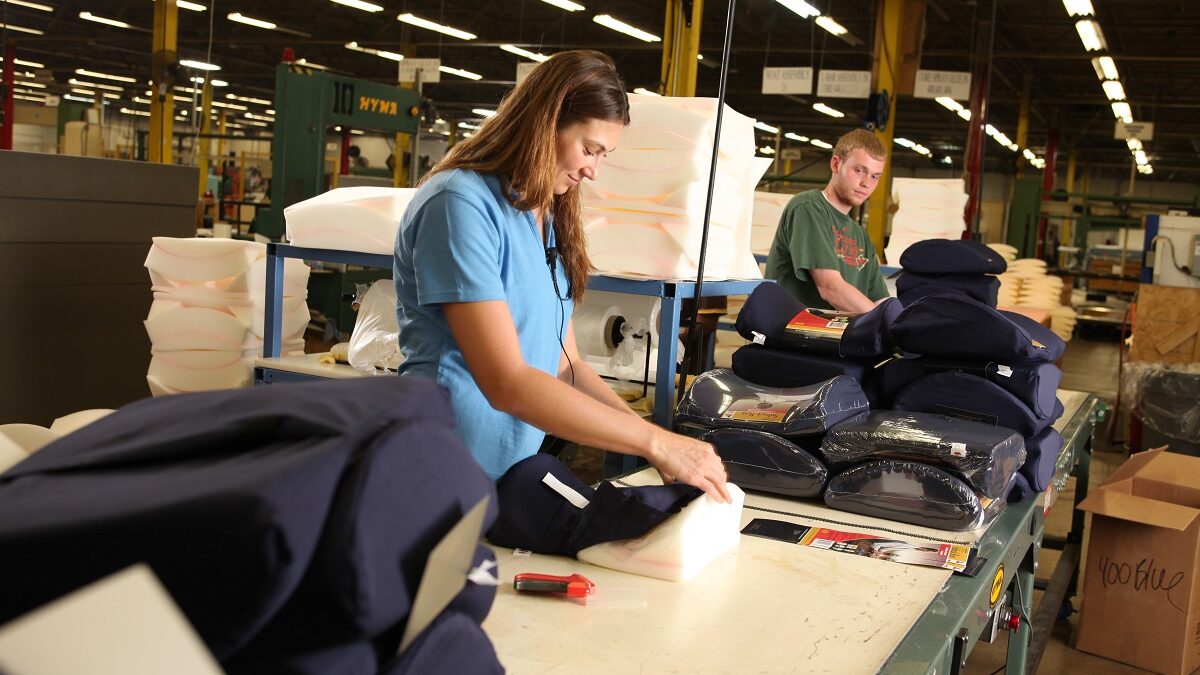Viscoelasticity is a common term that is often used to refer to certain pieces of foam. It’s a term that carries a lot of weight when choosing a foam for your application, but it’s also one of the more misunderstood terms you can come across. What is viscoelasticity when it comes to foam? Why does it matter? Does the foam you choose have to have viscoelastic properties? Find out more about viscoelasticity in foam and why it matters to your application.
The Definition of Viscoelastic
Viscoelasticity refers to a material’s ability to maintain both viscous and elastic properties when it is undergoing deformation. These types of materials essentially act like a solid and liquid at the same time. Since viscosity is a fluid’s resistance to flow and elasticity is a material’s resistance to deformation, viscoelasticity is a material’s ability to return to its normal state after deformation occurs.
What is Viscoelasticity in Foam?
As it pertains to foam, viscoelasticity is the foam’s ability to recover when a force is applied to it and subsequently removed. These types of foam (often referred to as memory foam) are able to redistribute forces that are applied to them, often conforming to the shape of the object, and then slowly recover their original shape without tearing, breaking, to remaining permanently compressed.
What Types of Foam Are Viscoelastic?
Many types of foams can have viscoelastic properties. One of the most common is an open-cell, low resistance polyurethane foam.
When Should You Use Foam That Is Viscoelastic?
Foams that are known for their viscoelasticity have many benefits, including:
- Shock absorption
- High level of comfort
- Vibration dampening
- Reactive to heat from the human body and environment, which can soften the foam
Because of these properties, viscoelastic foams are often used in:
- Cushioning and seating applications
- Pillows and foam Mattresses
- Medical wedges and supports
- Orthotics and support braces
- Packaging for small electronics and other delicate products
- Athletic mats
Depending on the type of foam, some material can off-gas. If you are working with an application where this is an issue, make sure to check with your foam supplier to see if the material will off-gas. These types of foam are also lightweight and not very dense. They are not often used as packaging materials or protection for heavy or bulky items.
Not sure if foams that have viscoelastic properties are right for your application? Get in touch with the foam fabrication experts at Amcon. We can help you choose the right foam and custom fabricate it to fit your products.


